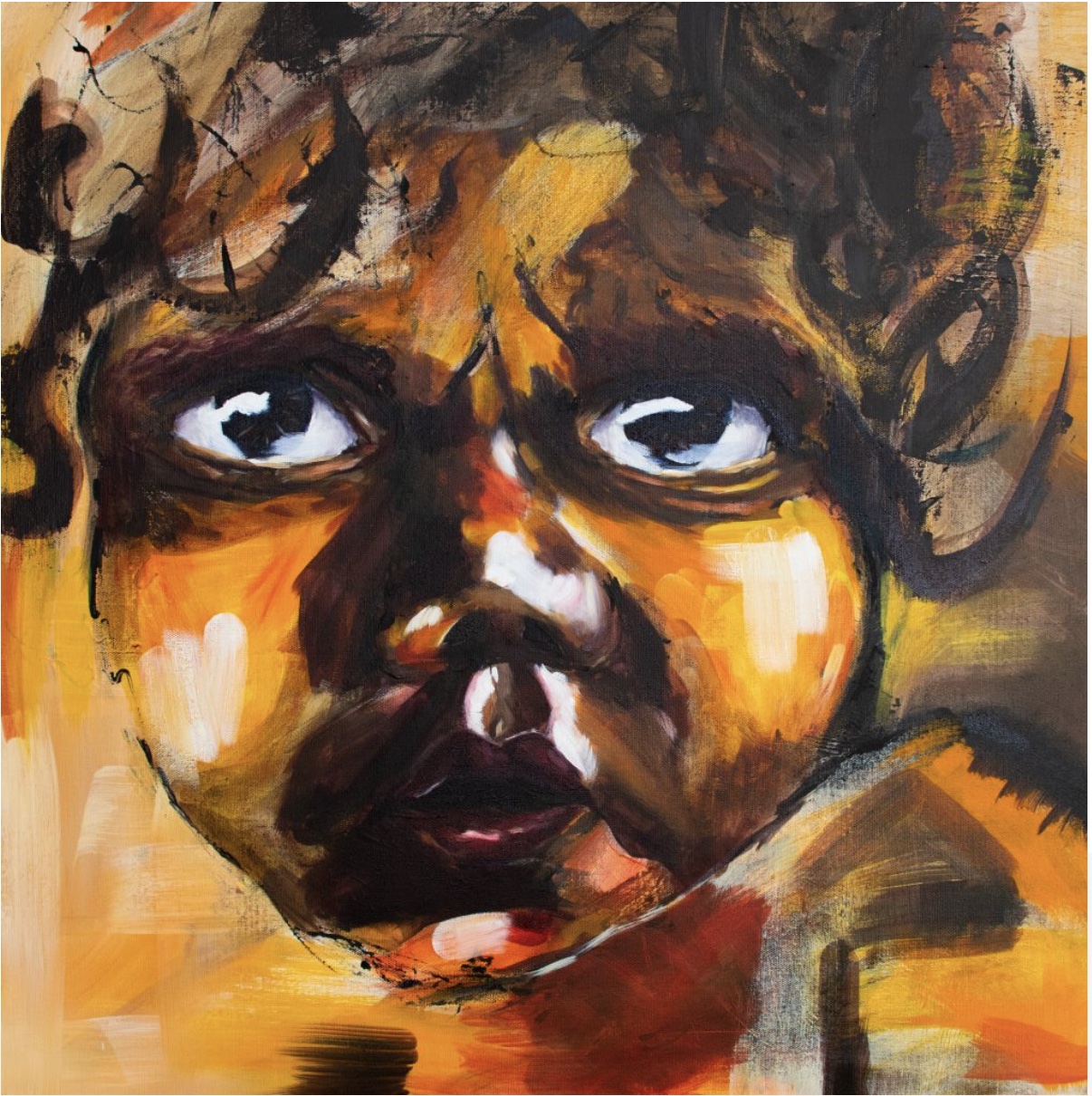Andrew L. Urban
As the baby girl began her life-affirming cry on the birthing table in the hospital, nurse Cathy began to recite a welcome to country – much to the surprise of the new mother, a proud Aboriginal woman. But then she was surprised to hear words she wasn’t expecting:
“Welcome to country where we acknowledge you as a valued new citizen of Australia. We acknowledge our past and those who forged it, in pain and in sorrow, in happiness and in joy, and we celebrate the multitude of achievements that brought health, common wealth and opportunity for all Australians.”

Aboriginal baby portrait by Miranda Aubret
Nurse Cathy, also a proud Aboriginal woman, ended her shift and drove home to her apartment, rang her dad, a manager in an interstate manufacturing firm, to wish him a happy 50th birthday. She switched on her TV, cooked herself dinner and filled her water bottle at the tap. It was the sixth and last day of her medication regime, and she was feeling well. She smiled as she recalled the look on the mother’s face as nurse Cathy handed her the new baby girl.
Wishful thinking? Naive optimism? But ….
How many Aboriginal babies and adults are alive today thanks to modern medical care introduced to Australia since the first British convicts landed here? How many adults have had their pain, their broken bones and their disease relieved or cured? How many Aboriginals are successful tradies, professionals, academics and politicians? I wonder if referendum activists like Marcia Langton and Thomas Mayo (he must rue his name) know?
But frankly, it isn’t the actual numbers that matter: what matters is that many are. Some are millionaires, apparently. Because Australia is a cliché….a land of opportunity. Those first convicts in 1788 could never have imagined what they started. That those Aboriginals they encountered on the beach and in the bush, who had yet to invent a writing system, would be voting in elections just 70 years later. Universal male suffrage, including for indigenous men, was introduced in NSW in 1858.
Yet in the ‘blaktivist’ playbook, Australia as we know it began life as a nasty nation established by an invasion – by unarmed convicts. This newly upgraded, industry-scale grievance cloud hovers over Australian society like the threat of black hail. Turbo-charged by the failed Voice campaign, the rise of ‘blak’ belligerence has crushed the community’s genuine good intentions and support for Aboriginal Australians, except for those who are disadvantaged.
‘belligerence’
Scabs of the past are ripped off the wounds of colonial sins. Historic grievances are elevated, promoted and often exaggerated in the pursuit of segregated power, claiming historic injustice as the justification for such campaigns. But as writer and philosopher Hannah Arendt wrote, “those who hold on to [this] grievance are often regarded as displaying not sensitivity or honour but belligerence.” That’s where we are now.
The legacy of the Voice referendum campaign is that very belligerence, propelled with the arrogant “we don’t take no for an answer” attitude. This reflects the antagonism that has pushed the majority of Australians away from any sense of reconciliation, with the grossly exaggerated accusations of genocide and the like, such as Senator Lidia Thorpe’s hysterical shriek, “they are still killing our babies!”
